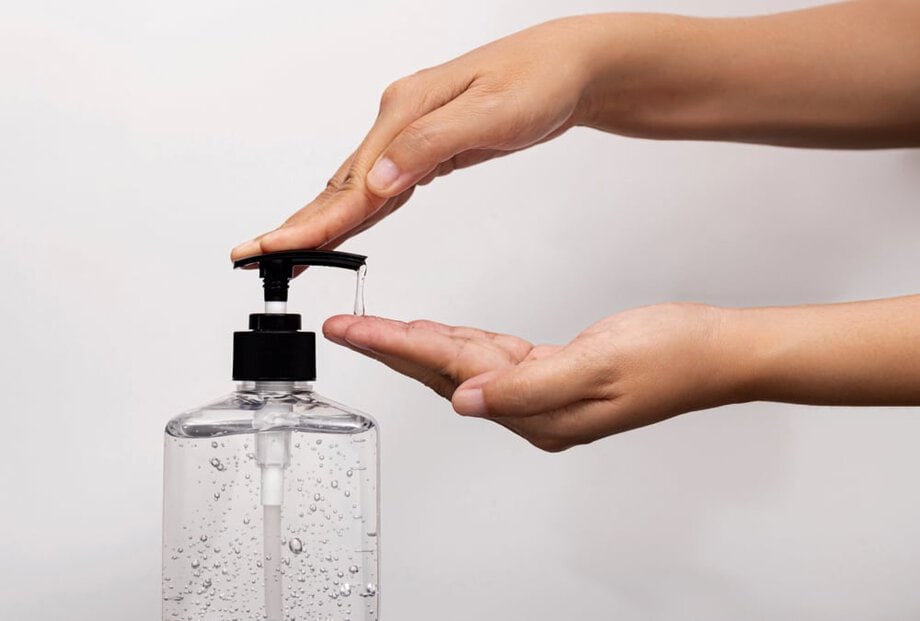What Is The Importance Of Antiseptics In Preventing Infections?

Infections caused by microorganisms pose a significant threat to human health and wellbeing. To counteract this threat, the use of antiseptics has been widely employed in various settings, such as healthcare facilities, homes, and personal care routines. This article aims to explore the importance of antiseptics in preventing infections by examining their role in different contexts.
Firstly, it is crucial to understand the role of microorganisms in infections. Microorganisms, including bacteria, viruses, and fungi, are capable of colonizing and invading the human body, leading to various infectious diseases. Antiseptics play a vital role in combatting these microorganisms by either killing them or inhibiting their growth.
Furthermore, proper hand hygiene practices, which involve the use of antiseptics, are essential in preventing the transmission of microorganisms. Similarly, in wound care and surgical procedures, antiseptics are crucial in preventing surgical site infections.
Moreover, antiseptics are widely used in dental and oral hygiene practices to maintain oral health and prevent oral infections. Additionally, antiseptics are effective in surface disinfection and cleaning, contributing to the prevention of infections in various environments.
Overall, antiseptics play a significant role in infection prevention by targeting microorganisms and maintaining hygienic practices in different settings. Understanding their importance in combating infections is crucial for promoting public health and reducing the burden of infectious diseases.
Key Takeaways
- Antiseptics play a crucial role in preventing infections during surgeries and wound treatments.
- They help maintain high hygiene levels and prevent the transmission of pathogens in healthcare settings.
- Antiseptics are essential in maintaining a hygienic environment at home and in personal care.
- They effectively eradicate harmful microorganisms from surfaces and objects, including hands, reducing the spread of germs.
Understanding the Role of Microorganisms in Infections
The understanding of the role of microorganisms in infections is essential for comprehending the significance of antiseptics in preventing infections.
Microorganisms are microscopic organisms that can cause a wide range of infections in humans. These infections can affect various parts of the body, such as the skin, respiratory system, gastrointestinal tract, and urinary tract.
Microorganisms can enter the body through various routes, including inhalation, ingestion, or direct contact. Once inside the body, they can multiply and cause harm by damaging tissues or releasing toxins.
The immune system plays a crucial role in defending against these microorganisms and preventing infections. However, in some cases, the immune system may be compromised or overwhelmed, leading to infections.
Antiseptics, such as disinfectants and antimicrobial agents, help to kill or inhibit the growth of microorganisms, reducing the risk of infections. They are particularly important in healthcare settings, where the risk of infection transmission is high.
By using antiseptics, healthcare professionals can maintain a sterile environment and prevent the spread of infections caused by microorganisms.
How Antiseptics Work to Kill or Inhibit Microorganisms
One key aspect in the battle against harmful microorganisms is understanding the mechanism by which antiseptics effectively kill or inhibit them. Antiseptics play a crucial role in preventing infections by targeting and destroying microorganisms that can cause harm. They work through various mechanisms to achieve this goal.
One common mechanism is the disruption of the cell membrane of microorganisms, leading to their destruction. Antiseptics can also interfere with the metabolic processes of microorganisms, inhibiting their growth and replication. Additionally, some antiseptics have the ability to denature proteins, rendering them ineffective and unable to carry out vital functions within microorganisms.
It is important to note that while antiseptics are effective in killing or inhibiting microorganisms, there is a concern regarding antiseptic resistance. Continued research and understanding of antiseptic mechanisms can help address this issue and ensure their continued effectiveness in preventing infections.
The Importance of Proper Hand Hygiene with Antiseptics
Proper hand hygiene with the use of antiseptics is crucial for maintaining a clean and safe environment. To ensure effective hand hygiene, it is essential to follow proper handwashing techniques. This includes:
- Wetting hands with clean running water.
- Applying soap and lathering all surfaces of the hands.
- Scrubbing for at least 20 seconds.
- Rinsing thoroughly.
- Drying hands with a clean towel or air dryer.
Antiseptics play a significant role in hand hygiene by killing or inhibiting the growth of microorganisms on the skin. When choosing antiseptics for hand hygiene, it is important to consider their effectiveness against a wide range of microorganisms, including bacteria, viruses, and fungi. Some of the best antiseptics for hand hygiene include alcohol-based hand sanitizers, chlorhexidine, and povidone-iodine.
By practicing proper hand hygiene with the use of effective antiseptics, the risk of infections can be significantly reduced.
Antiseptics in Wound Care and Prevention of Surgical Site Infections
Antiseptics play a crucial role in wound care and reducing the risk of surgical site complications. In the context of wound healing, antiseptics are used to prevent infection and promote a sterile environment. They help to kill or inhibit the growth of microorganisms that can cause infections, such as bacteria, viruses, and fungi. By effectively sterilizing the wound area, antiseptics assist in preventing the colonization and subsequent infection of pathogens.
Additionally, antiseptics are essential in post-operative care to prevent surgical site infections (SSIs). SSIs are a common complication following surgery and can lead to prolonged hospital stays, increased healthcare costs, and patient morbidity. Antiseptics aid in reducing the risk of SSIs by decreasing the microbial load at the surgical site, thus minimizing the chances of infection.
Overall, the use of antiseptics in wound care and post-operative care is vital for ensuring successful wound healing and preventing infections.
Antiseptic Use in Dental and Oral Hygiene Practices
The effective use of antiseptics in dental and oral hygiene practices is crucial for maintaining a clean and healthy oral cavity, evoking a sense of confidence and well-being in patients.
Dental antiseptic products and oral antiseptic solutions play a vital role in preventing and controlling oral infections. These antiseptics contain active ingredients that target and eliminate harmful microorganisms, such as bacteria and fungi, that can cause dental caries, gum disease, and other oral infections.
By using antiseptic mouth rinses or gels, individuals can reduce the number of bacteria in their mouth, promoting oral health and preventing the spread of infections. Additionally, antiseptics help to control bad breath by eliminating the bacteria responsible for foul-smelling odors.
Incorporating antiseptics into dental and oral hygiene practices is an effective preventive measure that can enhance overall oral health and contribute to a positive patient experience.
Antiseptics in Surface Disinfection and Cleaning
Surface disinfection and cleaning involves the utilization of antiseptics to eliminate harmful microorganisms and maintain a hygienic environment. These antiseptics are essential in preventing the spread of infections and ensuring the cleanliness of various surfaces.
Surface disinfection refers to the process of eliminating pathogens from inanimate objects such as tables, countertops, and medical equipment. Antiseptics used in this context are specifically formulated to be effective against a wide range of microorganisms, including bacteria, viruses, and fungi. They work by disrupting the cell membranes or metabolic processes of these pathogens, ultimately leading to their destruction.
Cleaning, on the other hand, involves the physical removal of dirt, debris, and organic matter from surfaces. Antiseptics are often incorporated into cleaning agents to enhance their antimicrobial properties.
By effectively disinfecting and cleaning surfaces, antiseptics play a crucial role in preventing the transmission of infections and maintaining a safe and healthy environment.
The Role of Antiseptics in Healthcare Settings and Infection Control
Healthcare settings rely on the use of antiseptics as part of infection control measures, ensuring a sterile and safe environment for patients and healthcare professionals alike.
Antiseptics play a crucial role in preventing infections in healthcare facilities by killing or inhibiting the growth of microorganisms on surfaces and medical equipment. They are used for disinfecting hands, wounds, and surgical sites, reducing the risk of healthcare-associated infections.
Moreover, antiseptics are also important in food safety, where they are used to sanitize food processing equipment and surfaces, minimizing the spread of harmful bacteria.
In veterinary medicine, antiseptics are used to prevent infections in animals during surgeries and wound treatments.
The use of antiseptics in these various settings helps to maintain a high level of hygiene and prevent the transmission of pathogens, ultimately safeguarding the health and well-being of both humans and animals.
Everyday Applications of Antiseptics in Home and Personal Care
Everyday applications of antiseptics in home and personal care involve the utilization of these substances to maintain a hygienic environment, effectively eradicating harmful microorganisms from various surfaces and objects. Antiseptics play a crucial role not only in healthcare settings but also in everyday life.
Here are three important ways antiseptics are commonly used in home and personal care:
- Antiseptics in food preservation: Antiseptic solutions are used to disinfect kitchen surfaces, cutting boards, and utensils, preventing the growth of bacteria and other pathogens. They help in preserving the freshness and quality of food, reducing the risk of foodborne illnesses.
- Antiseptics in pet care: Antiseptic solutions are used to clean wounds and prevent infections in pets. They are also used to disinfect pet bedding, toys, and grooming tools, ensuring the health and hygiene of our furry companions.
- Antiseptics in personal hygiene: Antiseptic soaps and hand sanitizers are commonly used to cleanse hands and prevent the spread of germs. They are particularly important in situations where access to water and soap is limited, such as during travel or in public places.
Incorporating antiseptics in everyday home and personal care routines helps in safeguarding against infections and promoting a healthy living environment.
Frequently Asked Questions
Can antiseptics completely eliminate all microorganisms?
Antiseptics have limitations in completely eliminating all microorganisms. While they are effective in reducing microbial populations, some resilient or resistant species may survive. Therefore, antiseptics should be used in conjunction with other infection prevention strategies.
Are antiseptics safe to use on all types of wounds?
Antiseptics are generally safe to use on all types of wounds, but caution should be exercised. Their effectiveness in preventing infections depends on factors such as the type of antiseptic used, concentration, and proper application techniques.
How often should antiseptics be used in dental and oral hygiene practices?
The frequency of antiseptic use in dental and oral hygiene practices depends on the efficacy of the specific product. It is important to follow the manufacturer’s instructions for optimal effectiveness in preventing infections.
Can antiseptics be used to clean surfaces other than skin?
Antiseptics can be used to clean surfaces other than skin, including medical equipment. They play a crucial role in preventing infections by effectively killing or inhibiting the growth of microorganisms on these surfaces, reducing the risk of transmission.
Are there any potential risks or side effects associated with the use of antiseptics in home and personal care?
Potential risks and side effects associated with the use of antiseptics in home and personal care include skin irritation, allergic reactions, and the development of resistant bacteria. The effectiveness of antiseptics in preventing infections depends on proper usage and adherence to recommended guidelines.








